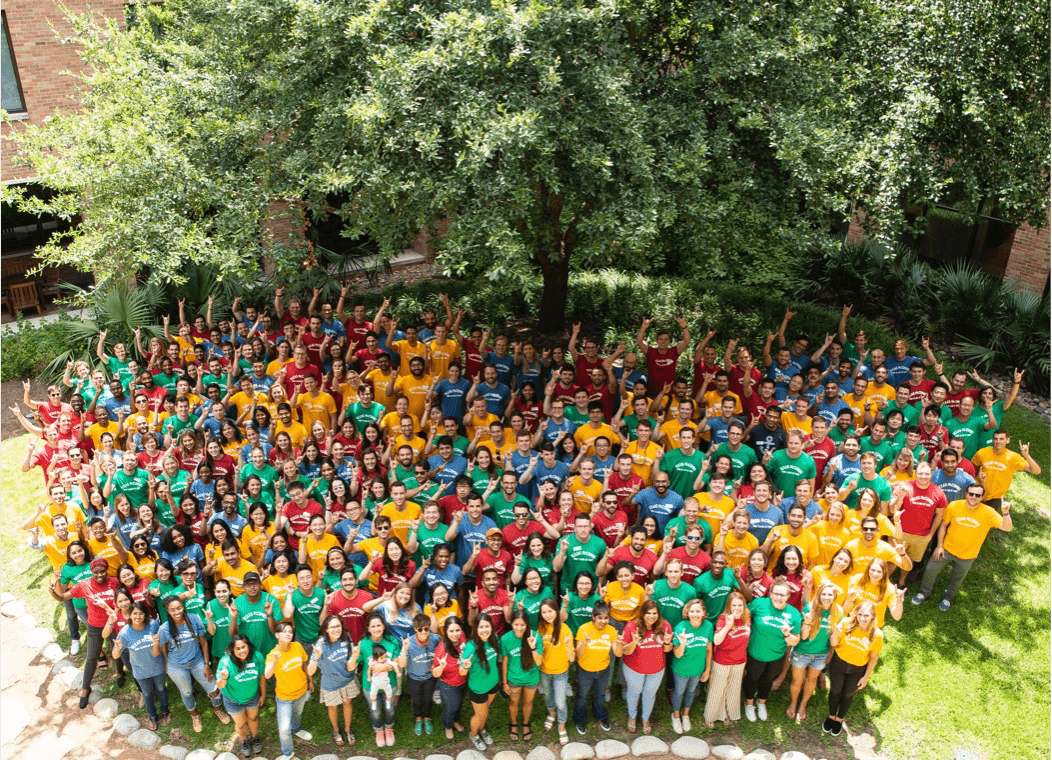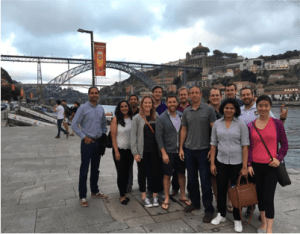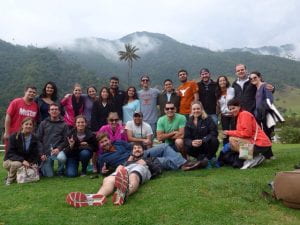This post is written by Lauren Logan.
This Veterans Day we are celebrating and honoring all of our active and former military MBA students.
Here at Texas McCombs, we understand that navigating the transition between military life and graduate education can be difficult – and we are here to help! All veterans and active military applicants qualify for an application fee waiver to any of our five MBA programs. Applicants also have the option of petitioning for a test waiver to waive the test score requirement.
Military applicants are also encouraged to take advantage of opportunities to connect with other veterans on campus and through virtual chats with members of the Texas Veterans in Business (TViB) student organization. TViB serves as the primary student organization for veterans pursuing an MBA. The organization offers plenty of opportunities to get to know other military students and to form a community with students who share a similar background. In addition, the Student Veterans Association regularly assists students with their relocation to Austin and offers programs to support military students’ success on campus.
Working Professional MBA Spotlights
Patrick Guide II
MBA at Houston ’25
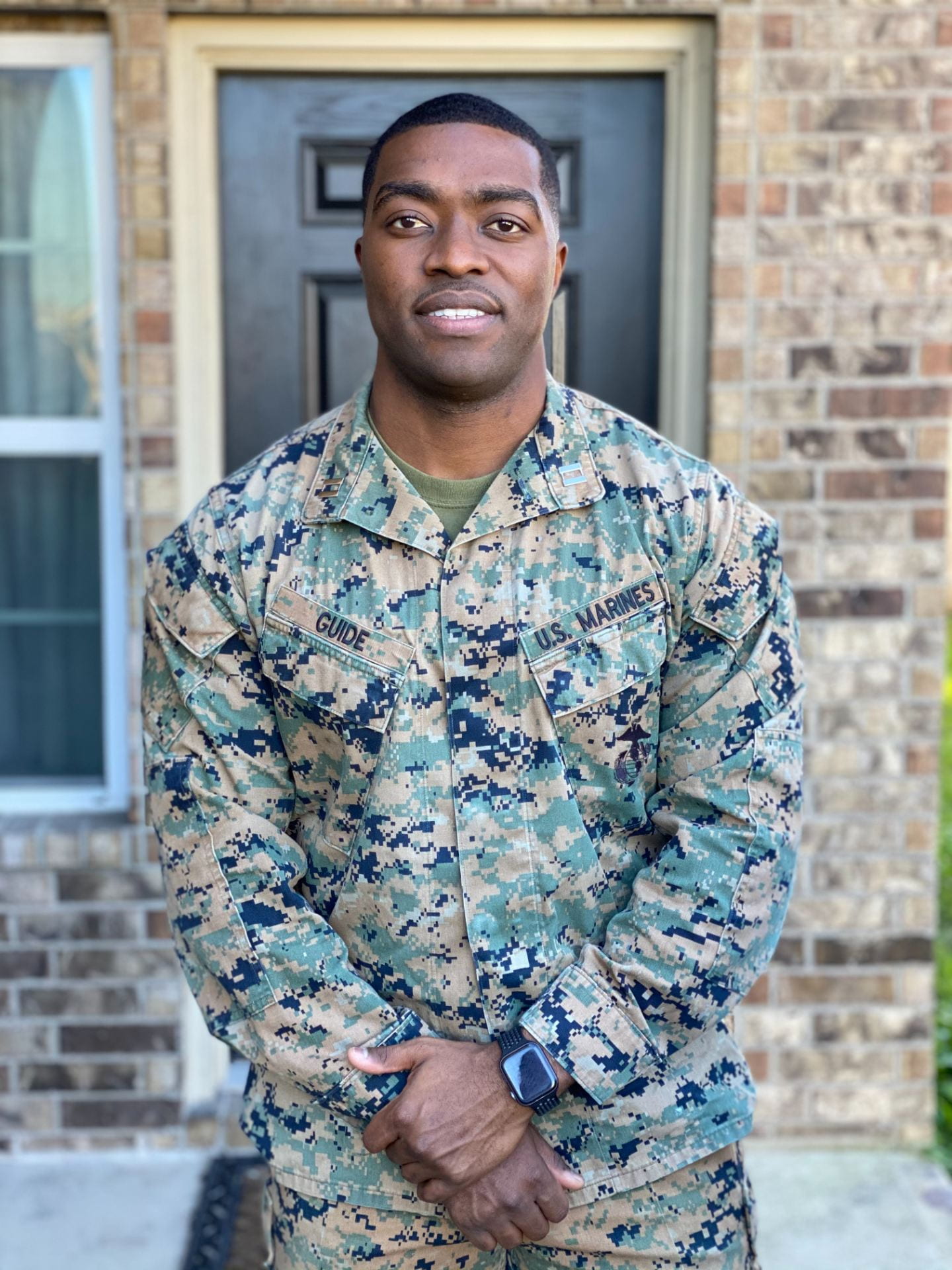
Patrick served 6 years as a Marine Corps Engineer Officer and is a first-year student in our Weekend MBA at Houston program. Patrick attributes the success he has had in the program to the leadership and adaptability skills he learned throughout his time in the military and believes that his time at McCombs will further reinforce these skills and will prepare him well for an executive career post-MBA.
“I take pride in being a servant leader who is passionate about solving problems and serving people. I chose the McCombs MBA program because I believe this experience will position me for roles of greater impact. My desire is to play a role in creating a better tomorrow and McCombs is a crucial part of that pursuit.”
“The MBA program is a challenging adjustment, especially being years removed from school, but learning to adapt is a key skill I believe most veterans possess. Naturally, the discipline gained through military experience is also very beneficial. I came in understanding that networking is very important but I’ve never been exposed to as many opportunities and connections as with the McCombs program. There are many opportunities to mentor and to be mentored as well. Being comfortable working with very diverse groups of people is critical to being successful in the MBA environment.”
“Because my final years of service were in the reserves, I have experienced balancing multiple obligations at once. As a working professional in the MBA at Houston program, that skill set is definitely beneficial and being developed even further. Relearning how to be a student has been a tough but rewarding process. My experience in the program has already given me a more holistic perspective of business and society as a whole. I’ve learned leadership lessons that I know will be very applicable to solving future problems and I’ve been able to leverage my experience to contribute to thoughtful conversations considering a diverse range of perspectives.”
Patrick plans to pursue an executive career post-MBA, continuing on his path as a servant leader while combining skills from both his time in the military and his engineering background.
Eric Kasper
MBA at Dallas/Fort Worth ’24

Eric Kasper is a 4th generation service member who served as a 1st Lieutenant Infantry Officer in the Army. His great-grandfather served in the Army and his grandfather and both parents served in the Air Force. Eric was stationed in Fort Benning for three years before serving on the General Staff supporting operations during the pandemic. He also served on the Commanding General of Fort Benning Staff. Eric says his shared military and MBA experience has enhanced his understanding of being an empathetic but impactful leader.
“I was medically retired from the Army after multiple surgeries for a knee injury. After three years of physical therapy, the medical staff made the decision to medically retire me from service. It was very challenging to know what career path to take after the decision to leave the military takes place. Thankfully I made strong connections with support staff in the VA benefits department, which allowed me to pursue a Master of Science in Economics. That master’s program propelled me to my first job at Texas Instruments which then led me to pursue an MBA.”
“I chose the Working Professional MBA at Dallas program because it provided me the ability to keep working while gaining further business acumen. As a military officer, you need to be able to lead from the front and display both the ability to learn and adapt as well as make decisions and move forward. In business school, especially in group case studies, the problem statement solutions are not readily known or easily identifiable. It takes the ability to learn from others and make decisive steps toward a shared goal to uncover the best solutions.”
“Being in the military is a humbling experience where leadership is rooted in practical experience and the reliance on your team or squad to provide their expertise and background. My MBA experience has enhanced my understanding of being an empathetic but impactful leader. McCombs has provided me the ability to understand macro-level business strategy through an analytical lens. The leadership experience I gained in the military allowed me to perform well under tight timelines and high-pressure situations. My military background proved to me that the right person in the right position can dramatically influence positive change for enterprise-level organizations.”
“My advice to anyone looking to apply is to talk with your VA representative as you go through out processing to verify your GI Bill and other benefits – have them physically print out documents to verify your eligibility.”
Brett Sheneman
MBA at Houston ’24
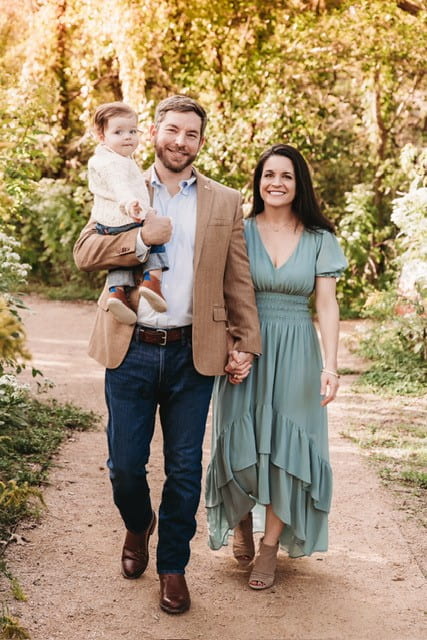
Brett Shenamen was a Captain in the U.S. Marine Corps who served as a Judge Advocate and Lead Prosecutor while stationed in Camp Lejeune, North Carolina. Before joining the military, he received his law degree from Michigan State University and is currently a Litigation Lawyer at ExxonMobil. His time in the military taught him how to work well with diverse groups of people and gave him the opportunity to positively impact his community.
“McCombs has both reinforced and changed my outlook on leadership. The curriculum is built around a business leader’s understanding of key fundamental components, including finance, statistics, marketing, and various management courses. In that sense, it changed my viewpoint. I always knew leaders needed to be competent; but a better, more well-rounded viewpoint and skillset is always valuable, especially when you surround yourself with truly qualified people. An MBA, especially at McCombs, is such a well-rounded program that will instill an analytical skill set sure to distinguish you from your peers.”
“I chose McCombs because it is a leaders’ program with outstanding faculty and an excellent reputation. Primarily, I wanted to augment my legal skills with a robust business management understanding. The biggest takeaway is the pure quality of human beings at McCombs. The professors, staff, and students are just top-notch. That likemindedness inevitably leads to high-functioning collegiality.”
“I was lucky enough to begin my ‘dream job’ as an in-house lawyer at Exxon Mobil Corporation and plan to remain there after graduation, hopefully until retirement. My military background played a key role in eventually serving an organization with multiple stakeholders and a storied dedication to local communities throughout the nation.”
Brett believes that his time at McCombs has reinforced important lessons he learned while serving in the military–most especially, “strength through diversity of people and thought.”
Ross Desoto
MBA at Dallas/Fort Worth ’24
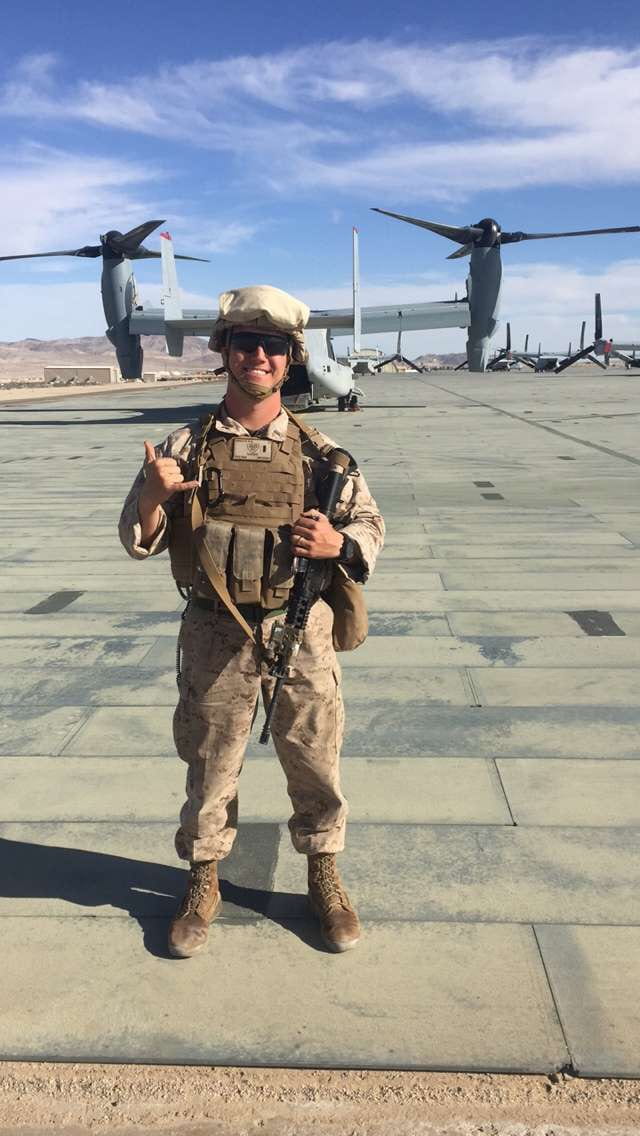 Ross Desoto began his military experience serving in the Marine Corps. During his time, he has served as the Battalion Supply Officer for 2 WESTPAC deployments to Okinawa, Japan where he participated in numerous multinational exercises in various countries around INDOPACOM. He also led 275 Marines in Sailors in day-to-day supply and maintenance operations supporting all Marines on the west coast. During his time there, he had the pleasure of deploying with 100+ Marines aboard the USNS Lewis & Clark where they supported operations in the Middle East.
Ross Desoto began his military experience serving in the Marine Corps. During his time, he has served as the Battalion Supply Officer for 2 WESTPAC deployments to Okinawa, Japan where he participated in numerous multinational exercises in various countries around INDOPACOM. He also led 275 Marines in Sailors in day-to-day supply and maintenance operations supporting all Marines on the west coast. During his time there, he had the pleasure of deploying with 100+ Marines aboard the USNS Lewis & Clark where they supported operations in the Middle East.
“As I planned to exit the Marine Corps, I knew that I wanted to move back to Dallas to be closer to family. Going to grad school was always a goal of mine and I began exploring MBA programs in Dallas. After doing my research and attending a few different school’s class visits I knew McCombs was the right fit for me. The Working Professional MBA at Dallas program fits my work schedule, and the caliber of fellow students and professors far exceeded every other program in Dallas. I knew it was the best program for me.”
“The culture in the Marine Corps and the culture at McCombs are vastly different and yet still the same. Within McCombs and the Marine Corps, there is a strong sense of personal accountability and a culture where ‘you are your brother’s keeper.’ I’ve found that I can rely on my study group and friends here at McCombs just like I relied on my Marines. We take care of one another and ensure we are all successful.”
“The most important lesson that I’ve learned while at McCombs is that just because you are a veteran and have done really hard things, you don’t have a market share on hard work. Regardless of background, everyone at McCombs has an impressive resume and has worked really hard to get where they are. It was humbling for me to look around during our first Austin Intensive and see the caliber of person that I was now classmates with and be so impressed with every student. From that point forward I was able to learn from everyone’s different experiences and value what everyone brings to the table.”
“Post-MBA I’m hoping to stay in finance and eventually pivot into private equity, with the hopes of eventually being a partner at a private equity firm. The military taught me to take information, analyze it, and make decisions effectively. Those skills translate directly to running a business and coupling those skills with what I learned at McCombs will hopefully lead to success.”
“The best advice I would give is to believe in yourself and go for it. A lot of veterans are hesitant about if they are capable of getting an MBA or are scared of the GMAT. It is hard to go back to grad school but it is not that hard and you have done harder things in the military. Study hard for the GMAT and tie your experience into your application because once you get your MBA you will continue to lead and make a difference anywhere you land.”
Jeffrey Caslen
MBA at Houston ’25
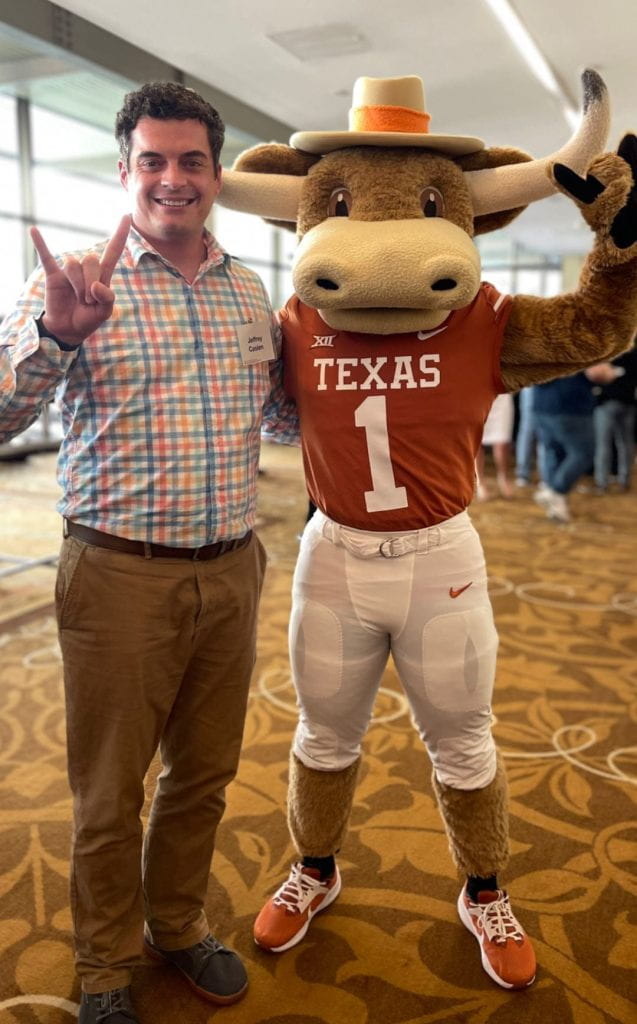 Jeffrey Caslen was commissioned as a Field Artillery Officer in 2009 after graduating from the United States Military Academy at West Point. After his Officer Basic Course, he met his Platoon mid-deployment in Baghdad, Iraq. After returning from Iraq, He moved to Fort Sill, Oklahoma, where he changed his Branch to Public Affairs (PAO). As a PAO, he served in many roles, including Brigade Public Affairs Officer, Command Team Speechwriter, and Observer Coach/Trainer at the National Training Center, in Fort Irwin, California. Jeffrey transitioned out of Active Duty in 2020 and is currently a Major in the Individual Ready Reserve.
Jeffrey Caslen was commissioned as a Field Artillery Officer in 2009 after graduating from the United States Military Academy at West Point. After his Officer Basic Course, he met his Platoon mid-deployment in Baghdad, Iraq. After returning from Iraq, He moved to Fort Sill, Oklahoma, where he changed his Branch to Public Affairs (PAO). As a PAO, he served in many roles, including Brigade Public Affairs Officer, Command Team Speechwriter, and Observer Coach/Trainer at the National Training Center, in Fort Irwin, California. Jeffrey transitioned out of Active Duty in 2020 and is currently a Major in the Individual Ready Reserve.
“The military prides itself on its diversity and having an organization that reflects the American population. While in the Army, I learned how to lead teams of motivated people with diverse backgrounds and skill sets to achieve a common goal. In the Business world, many leadership challenges seem to have a ‘no-win’ scenario. There are many variables involved that I did not need to worry about as a military leader. By maintaining my ethical leadership style I developed in the Army, I know I can hold my head high regardless of my decisions when I become a business leader.”
“I have noticed a few similarities between the Army and the McCombs culture. One is that we bond through hardship, and become extremely close, building a lifetime bond. Additionally, the focus on team vs individuality is similar between the Army and McCombs. Although this is my MBA, It is unachievable without relying on my peers’ strengths to help me through the program. Texas McCombs is amazingly diverse, and leaning on my classmates’ incredible skill sets for projects and collaboration is a skill I learned as an Army Officer.”
“Everyone has a unique and valuable experience. Although my experience in the Army is valuable to me, all of my classmates have impactful experiences that allow me to grow through their storytelling and mentorship. Seeing how great and accomplished my classmates are really humbles and motivates me to become the best version of myself so I can live up to their expectations.”
For those looking to apply to McCombs, Jeffrey offers some advice. “Take your time and find a program that best fits your end goals and your family. Each university has a helpful Veteran’s Department to help you with your VA applications and help quell any concerns. UT’s Veteran’s Department answered all my questions and helped me feel confident that I would be taken care of during my time as an MBA student.”
Applicants have a range of resources to utilize as they are applying to Texas McCombs. Follow Texas Veterans in Business on Instagram to connect with current students.
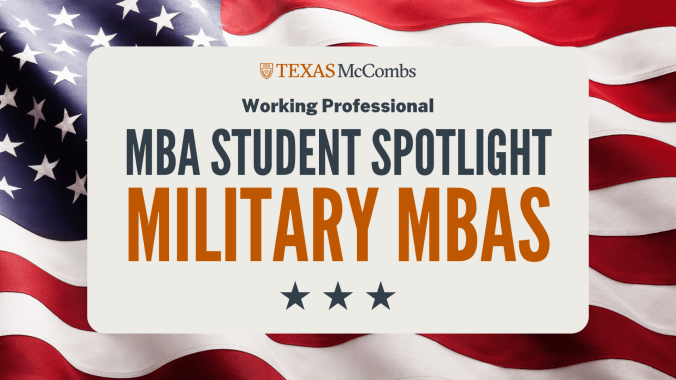

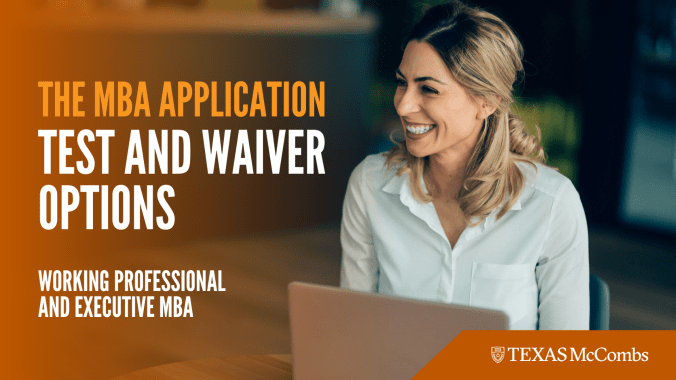
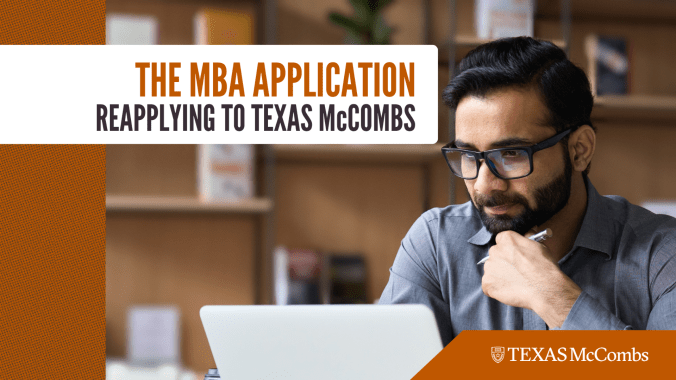

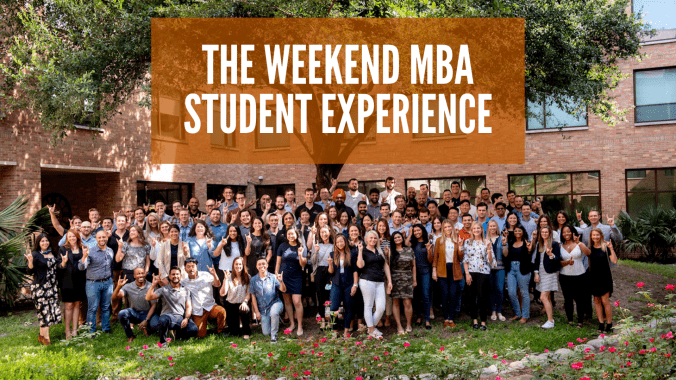
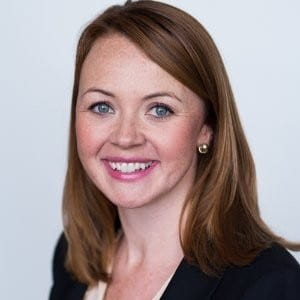 The MBA Insider content below comes from
The MBA Insider content below comes from 